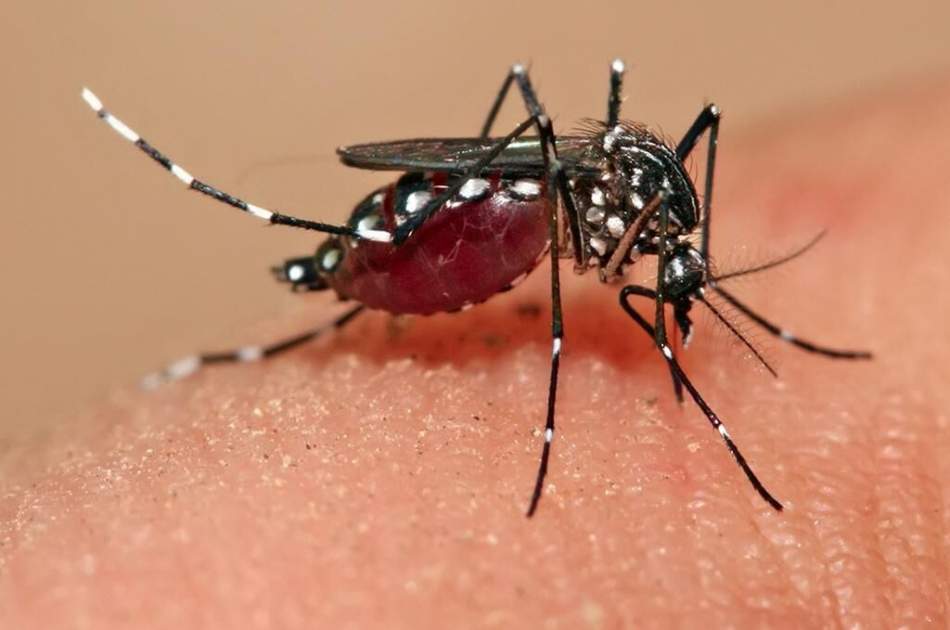Coinciding with World Malaria Day, the World Health Organization says that Afghanistan has witnessed 125,788 cases of malaria in 2022.
Publish dateWednesday 26 April 2023 - 09:35
Story Code : 268964
Afghan Voice Agency (AVA) - Kabul: Coinciding with World Malaria Day, the World Organization says that the incidence of this disease has doubled in Afghanistan.
According to the statistics published by this organization on its Twitter page yesterday, Tuesday, April 25, in 2022, Afghanistan has witnessed the registration of 125,788 cases of malaria.
This organization added that the incidence of malaria in Afghanistan in 2022 has increased by 45% compared to a year ago.
The World Health Organization has said: "About 90 percent of the cases are related to the four eastern provinces, Nangarhar, Laghman, Kunar and Nooristan.
"Meanwhile, Sharaf Zaman Amarkhil, the spokesperson of the Ministry of Public Health of the Islamic Emirate, also confirmed to reporters the increase in malaria cases in Afghanistan last year, but said that the total number of malaria patients has been decreasing since 2016.
He said: "From 2016 to 2022, the incidence of malaria in Afghanistan has decreased by 67 percent. If we compare the incidence of 2022 with the statistics of 2021, there has been an increase of approximately 45 percent in the incidence of malaria in 2022. The reason is the provision of services.
The spokesman of the Ministry of Health added that mosquito nets were distributed to two million people in areas under the threat of malaria last year.
According to the information of the Ministry of Public Health, 10 provinces of Afghanistan have been completely cleared of falciparum malaria and there have been no deaths due to this disease in Afghanistan in the last four years.
Malaria is a deadly but preventable and treatable parasitic disease that is transmitted to humans from the Anopheles mosquito and is more prevalent in tropical countries.
Fever, chills, weakness and other flu-like symptoms are the symptoms of this disease. The World Health Organization recommends that you seek the advice of a healthcare professional if you live in an area with malaria and experience these symptoms.
Also, this organization recommends the use of mosquito nets, anti-mosquito materials, protective clothing and netting in the walls of houses to prevent malaria.
The World Health Organization has emphasized that the incidence of malaria will be zero when there is innovation in this investment sector. Meanwhile, the Ministry of Public Health of the country has asked the international community for comprehensive cooperation in order to completely eradicate malaria in Afghanistan.
According to the statistics published by this organization on its Twitter page yesterday, Tuesday, April 25, in 2022, Afghanistan has witnessed the registration of 125,788 cases of malaria.
This organization added that the incidence of malaria in Afghanistan in 2022 has increased by 45% compared to a year ago.
The World Health Organization has said: "About 90 percent of the cases are related to the four eastern provinces, Nangarhar, Laghman, Kunar and Nooristan.
"Meanwhile, Sharaf Zaman Amarkhil, the spokesperson of the Ministry of Public Health of the Islamic Emirate, also confirmed to reporters the increase in malaria cases in Afghanistan last year, but said that the total number of malaria patients has been decreasing since 2016.
He said: "From 2016 to 2022, the incidence of malaria in Afghanistan has decreased by 67 percent. If we compare the incidence of 2022 with the statistics of 2021, there has been an increase of approximately 45 percent in the incidence of malaria in 2022. The reason is the provision of services.
The spokesman of the Ministry of Health added that mosquito nets were distributed to two million people in areas under the threat of malaria last year.
According to the information of the Ministry of Public Health, 10 provinces of Afghanistan have been completely cleared of falciparum malaria and there have been no deaths due to this disease in Afghanistan in the last four years.
Malaria is a deadly but preventable and treatable parasitic disease that is transmitted to humans from the Anopheles mosquito and is more prevalent in tropical countries.
Fever, chills, weakness and other flu-like symptoms are the symptoms of this disease. The World Health Organization recommends that you seek the advice of a healthcare professional if you live in an area with malaria and experience these symptoms.
Also, this organization recommends the use of mosquito nets, anti-mosquito materials, protective clothing and netting in the walls of houses to prevent malaria.
The World Health Organization has emphasized that the incidence of malaria will be zero when there is innovation in this investment sector. Meanwhile, the Ministry of Public Health of the country has asked the international community for comprehensive cooperation in order to completely eradicate malaria in Afghanistan.
avapress.net/vdcepv8wejh8poi.1kbj.html
Tags
Top hits







